The UN defines as “stateless” as someone who is “not considered as a national by any state under the operation of its law”. But does a simple definition mirror the true nature of being stateless?
Mohammed Moustafa is a 22-year-old Lebanese. His mother passed away when he was just a child, and his father does not recognize him as his own. Lebanese law states that a person can only get citizenship through his father and therefore, Mohammed cannot gain the Lebanese nationality.
Being stateless doesn’t just mean you don’t have a plastic card with your name on it. It means that you are not eligible to work any job and you cannot even apply for a passport which means you cannot leave the country. You cannot enroll in any institute of education. Being stateless means you have no access to the health care system, means you cannot get married or register your children. It basically means that all the civil rights we gain by birth are non-existent to people like Mohammed.
He’s been living on the streets ever since he can remember. Eating whatever he can find, sheltering wherever he can. He says: “People sometimes pass by me, spitting on me and shouting go get a job. I wanna scream back and say that I’ve been trying to get one, that I’ve spent the last three years roaming the streets of Beirut trying to find anyone that would hire me.” Mohammed sings for a living. He uses the sidewalks of Beirut as his own personal stage, and he also mimes from time to time. He says that he loves doing it and that it keeps him fed, and so he never has to ask people for food or money.
Living on the streets isn’t for the faint of heart: Mohammed says he’s always bullied, people sometimes beat him up for no reason, just because he’s homeless.” He also added that earlier this evening he was pushed down to the floor and kicked in the stomach by two bouncers just because he was standing in front of a club. He said: ” they asked me what was I doing, and I said I was just standing. They asked me to move away and I said that it’s a public sidewalk and I could stand here. One of the guys approached me and slapped me in the face, and then the other one joined him and they started beating me up.”. Mohammed says he passed out for about 5 mins.
He only asks of people to be nicer and more humane. And when I asked him if he has lost faith in humanity, he said: “Lebanon was a beautiful place, people were kind, people were friendly. But now, it seems like everyone hates each other, people killing each other, stealing from each other. Why could they not love each other, why is everybody so filled with hate?” He adds that not all people are bad of course and that some are very nice, some buy him clothes, let him stay at their place.
Mohammed has a message he wants me to send.
“I wish someone, anyone would adopt me. I want to leave this country, get a job somewhere, start a life. I want to settle down. I would love to go to any newspaper now and tell them my story. Everybody’s going to Germany now. I want to go as well. I can’t take it here anymore, I need to leave.” He said this with tears in his eyes. I almost cried.
Mohammed Moustafa is one of more than 1500 kids living in Lebanese streets without citizenship. His voice will hopefully reach people all over the world. Just remember, his life could have been yours if the cards were dealt differently.
The strong will always prey on the weak. Life is always gonna be unfair. But to you, Mohammad and to others like you, we say, hold on. Change is coming. Your voice was heard today.
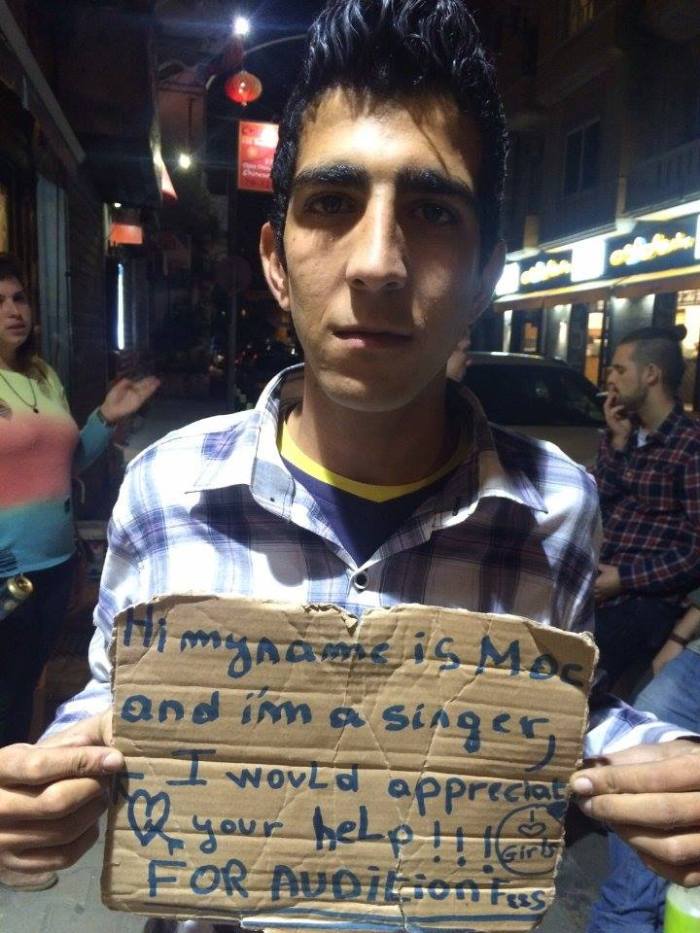
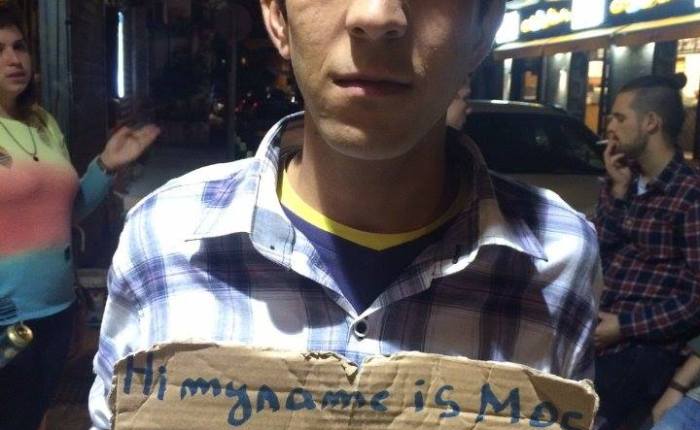
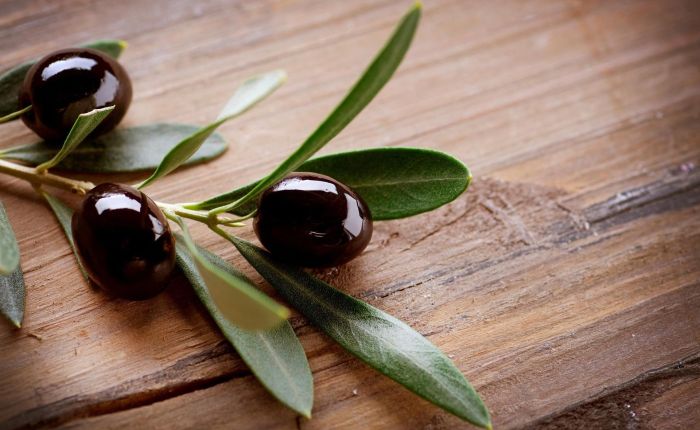
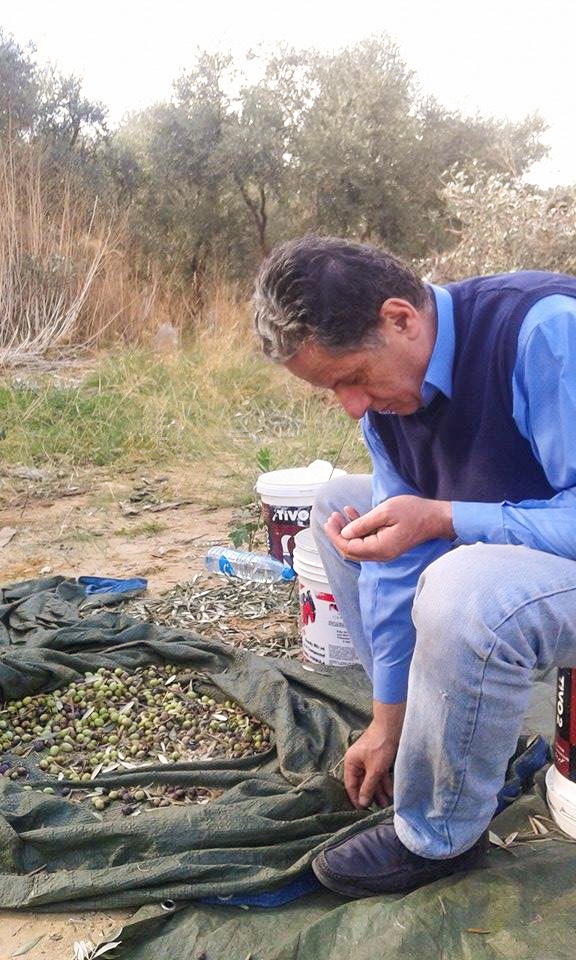
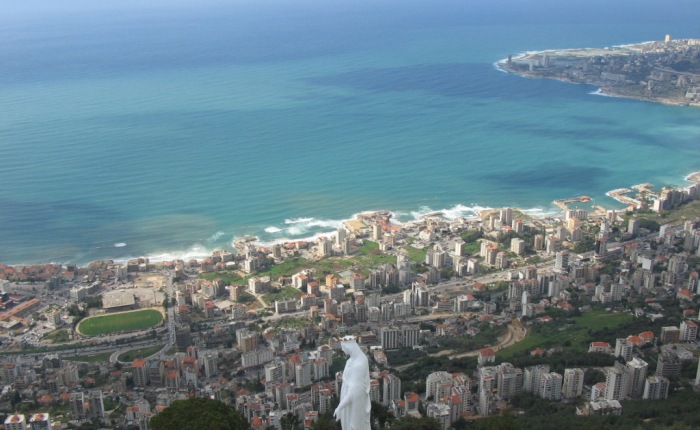
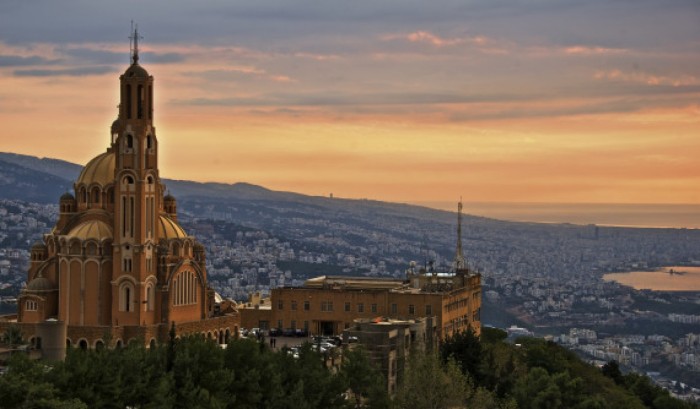 Marhaba everybody
Marhaba everybody